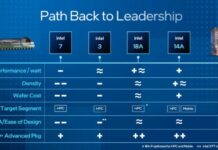Western Digital released earnings that absolutely blew out analyst estimates this week. Analysts are expecting Seagate to follow suit next week. This makes a ton of sense. With the Western Digital – Hitachi GST merger and the Seagate Samsung merger, there are effectively three hard drive players with Toshiba being number three. The hard drive industry has essentially has two titans like the US non-alcohoholic beverage market, Western Digital (large share like Coca Cola), another large competitor Seagate now with Samsung (like Pepsi) and everyone else making up a small percentage (e.g. Toshiba.)
Probably the most interesting thing is that we are seeing hard drive pricing still well beyond what we did prior to the floods in Thailand. With fewer competitors, Western Digital and Seagate can basically set pricing through price signals and only need to keep an eye on the other one. Toshiba’s manufacturing costs are going to be higher because the hard drive industry is dominated by economies of scale, and Toshiba has a much smaller scale, so they will likely be a follower to maintain gross margin. Most OEM’s purchase from at least two vendors to manage supply risk so in a market of three, odds are either both big players or all three vendors will get a piece of the action on any deal.
Also of note, not only have prices risen dramatically, but warranties have also been slashed. In January, Western Digital and Seagate reduced warranties on consumer SATA disks. For the companies, this reduces costs by a ton. If you figure a 4% AFR for SATA drives, the companies save on processing, shipping (one way) and handling costs not to mention the logistics costs on replacement drives. Reduced warranties push costs of retail drives (OEM partners often receive a discount for non-returnable disks) significantly.
Bottom line, Western Digital and Seagate are lining up to get better economies of scale through their acquisitions for lower manufacturing costs. Better bargaining power because most OEMs will purchase from both to manage their supplier risk. Finally they are getting lower support costs due to reducing warranty coverage on retail drives. All of these combine are showing how the hard drive market is stabilizing and becoming very profitable. With that being said, the next issue may be on the horizon because the enterprise market is starting to gain price parity between SATA solid state drives and Enterprise SAS hard drives. This is not great for consumers but is good for the companies.
Snippet from the July 25 release:
IRVINE, Calif. — Jul. 25, 2012 — Western Digital® Corp. (NASDAQ: WDC) today reported revenue of $12.5 billion and net income of $1.6 billion, or $6.58 per share for fiscal year 2012, compared to fiscal 2011 revenue of $9.5 billion and net income of $726 million, or $3.09 per share. On a non-GAAP basis, fiscal 2012 net income was $2.1 billion or $8.61 per share, compared to fiscal 2011 net income of $770 million or $3.28 per share.1 Both the GAAP and non-GAAP fiscal 2012 results include results from the company’s newly acquired HGST subsidiary from the acquisition date of March 8 through the end of fiscal 2012.
For its fourth fiscal quarter ended June 29, 2012, the company reported revenue of
$4.8 billion, hard-drive shipments of 71.0 million and net income of $745 million, or $2.87 per share. On a non-GAAP basis, net income was $872 million, or $3.35 per share.2 In the year-ago quarter, the company reported revenue of $2.4 billion, net income of $158 million, or $0.67 per share, and shipped 53.8 million hard drives. Non-GAAP net income in the year-ago quarter was $193 million, or $0.81 per share.3The company generated $1.1 billion in cash from operations during the June quarter, ending with total cash and cash equivalents of $3.2 billion. During the quarter, the company repaid $558 million of debt and spent $604 million to buy back over 16 million shares of common stock.




Sickening and consumers are getting the short end of it…